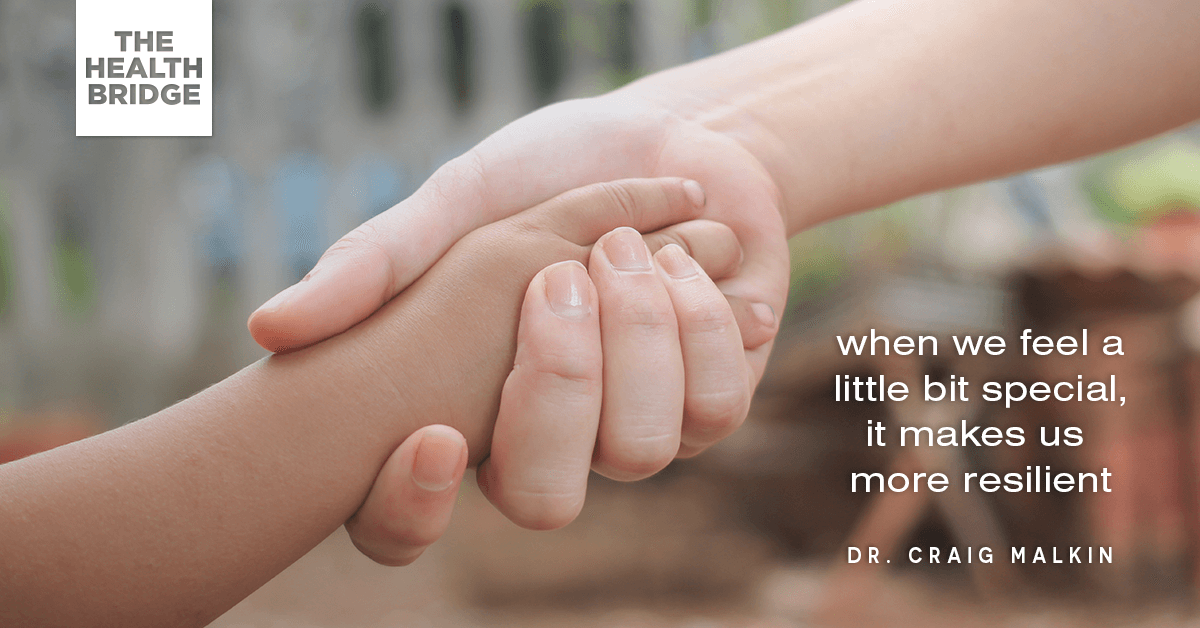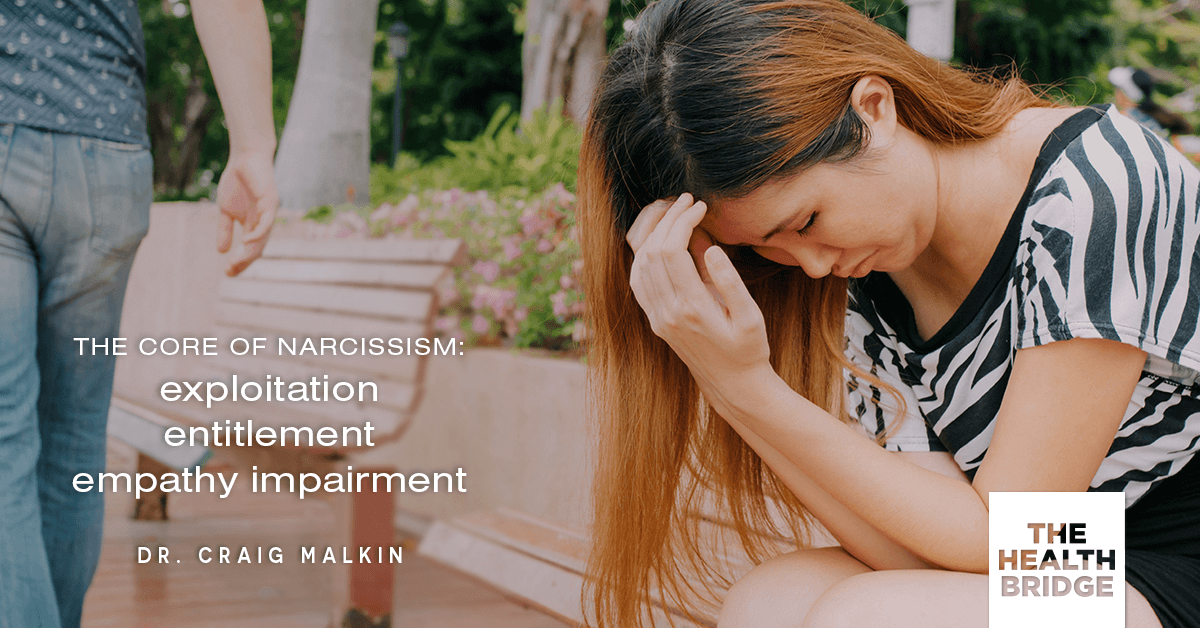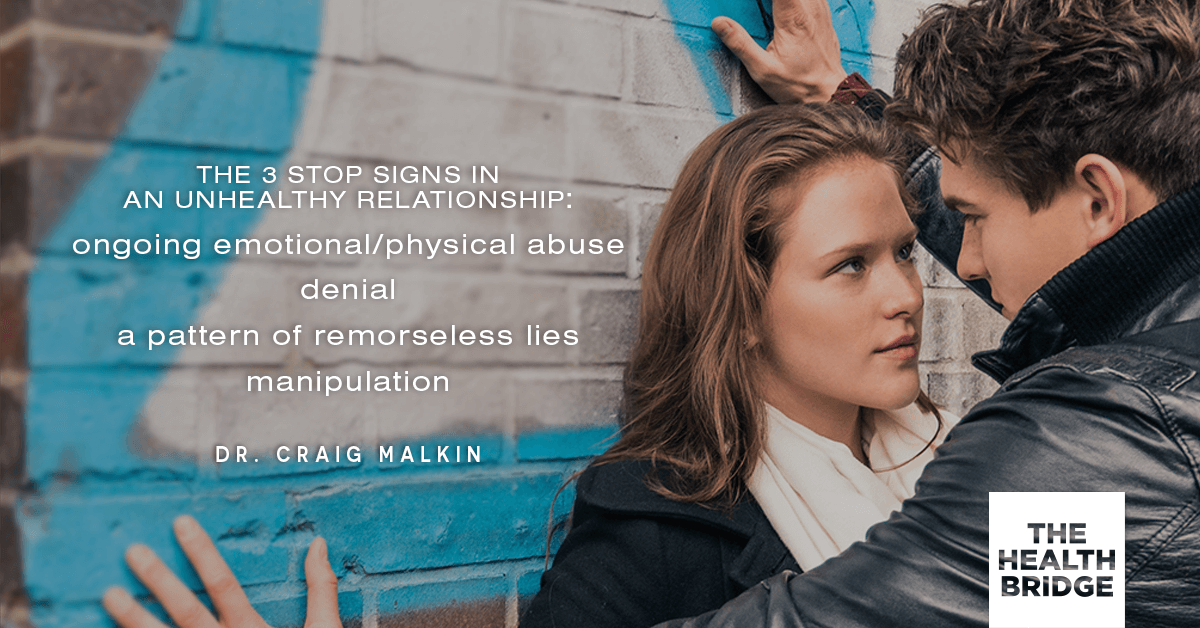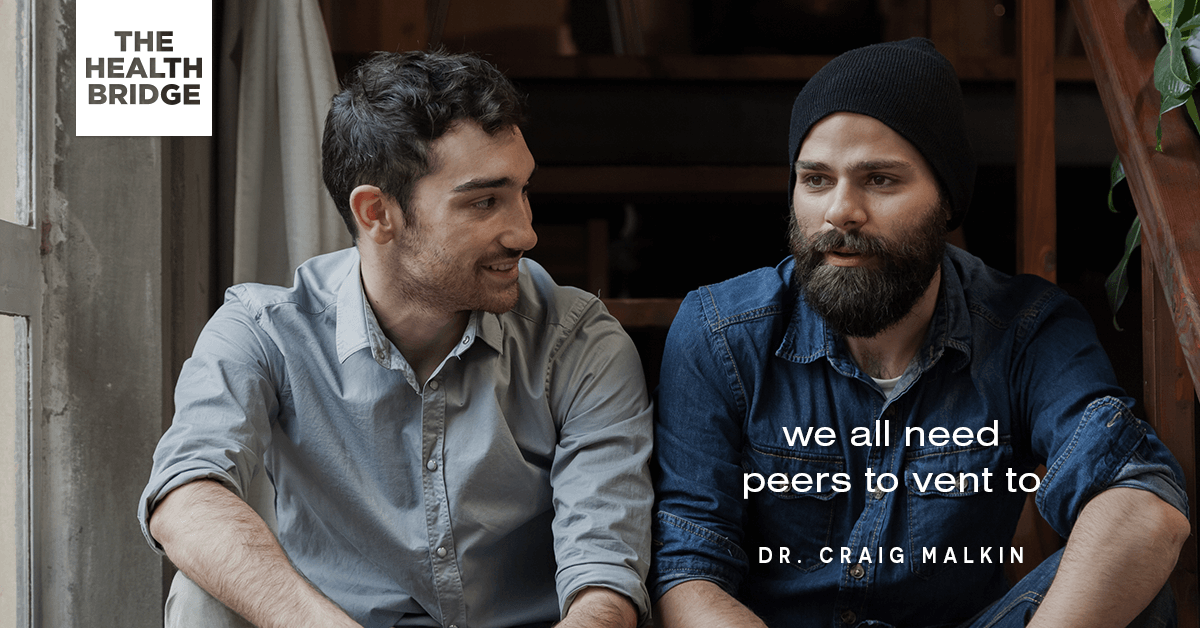Table of Contents[Hide][Show]
Dr Craig Malkin is taking a cold hard look at Narcissism. He’s a Harvard professor who’s challenging the stigma attached to the word and shedding light on some of the positive traits…baby out with the bathwater kind of stuff.
So what’s Narcissism?
The Core of Narcissism According to Dr. Malkin (The 3 E’s)
1- Exploitation
2- Entitlement
3- Empathy Impairment
These need to be there for someone to be diagnosed as having the disorder but he notes that NOBODY can get tagged with this without a full workup by a trained psychologist. People on TV? That may be a front, external persona, or something else. In fact, according to Dr Malkin, Leadership Authority is a healthy form of narcissism. Healthy narcissism leads to self enhancement and confidence (in the right dose).
The key point is that some “rose colored glasses” can help us get through life’s challenges better and the stigma associated with the word needs a revisit. I really enjoyed this interview and know that you will to.
Here are the show notes
Dr. Pedram:
Hey, welcome back to The Health Bridge. Dr. Pedram here again with a racy subject. We’re talking about narcissism and the first word that comes to mind with narcissism is woo. It’s something that we judge. We judge narcissists. One of the fastest rising searches on Google actually is what is narcissism? Articles on the topic routinely go viral and I’m starting to wonder.
I go in camera twice a week with series the Health Bridge and the Urban Monk. Does it make sense for me to talk about this? Does that make me a narcissist? I’m on camera all the time. I’m hoping today’s guest the author of the book Rethinking Narcissism can help sort that out. Dr. Craig Malkin is an author, clinical psychologist and instructor of psychology for Harvard Medical School with two decades of experience helping individuals, couples and families.
His articles advice on insights on relationships have a period in psychology today, time, women’s health, men’s health and the Huffington post. I’m really excited about this doc. Welcome to the Health Bridge. Why so much in the current literature on narcissism? Is it an epidemic? What’s going on here?
Dr. Craig:
A couple pieces to your question that we need to address. First of all, there’s a whole question, what is narcissism? When most of us think of the word narcissism or narcissists, we have this image of vain, preening, primping, boastful braggarts, reality TV types. First, we have to talk about what narcissism isn’t and narcissists aren’t because not all narcissists care about looks or fame or money and some can be extremely quiet.
If you got too focused on that image which is really a caricature you miss signs of danger even that have enough thing to do with vanity or greed and more reliable signs that can help you understand and cope with what’s going on in a relationship. I really spend the first three quarters of Rethinking Narcissism talking about what’s bad about narcissism in a different way but the second piece, the second half to your … of answer to your question is really beginning in 1980, there was a book called the Culture of Narcissism by Christopher Lasch.
That’s where the word first really burst on at the scene for the general population and people were fascinated about it because basically he said, “We have a narcissistic culture of people obsessed with materialism and it’s really taking over.” He’s really talking particularly about western culture in America. There was a second wave around 2008, 2009 when a group of researchers including a physiologist named Dean [Twingy 00:02:59] declared that there was a narcissism epidemic based on research that she had looked at an evidence that she had gathered. The short answer to your … the second part of your question is no I don’t believe there is a narcissism epidemic.

Dr. Pedram:
Let’s get into the classic definition of narcissism. You teach this at Harvard. What is a narcissist? How do you identify someone who has narcissism?
Dr. Craig:
Excellent question, because the first to thing to understand is that narcissist is not a diagnosis. It never has been. Even some people in a mental health profession often use narcissist and narcissistic personality disorder which we can touch on synonymously but they’re not the same thing. Narcissist simply means someone higher than average in traits of narcissism and that’s usually measured by a standard measure of some kind.
The narcissistic personality inventory is one of them but there are a number of measures out there and you’d give people the measure and if they score well above average they are called narcissists. They may or may not be disordered and if you look at the research in fact, there are many people who score high enough to be narcissists who never actually reached the level of disorder.
In fact, there’s a number of studies that show that the vast majority of politicians and presidents score high enough on measures to be narcissists. It’s just there are healthy and unhealthy aspects to narcissism and we have began to tease them apart in the research.
Dr. Pedram:
You’ve got a scale, let’s just say the left side of the scale would be utter selflessness. Your Mother Teresa, you’re the Buddha, you don’t have any ego at all, you’re just out there serving. The other side all the way to the right would be total arrogance. Is that basically like … is it the 50-yard line over? Where does narcissism start there and how do we find ourselves on that map?
Dr. Craig:
Again, the traditional spectrum … a lot of people have talked about a spectrum of narcissism. It’s often written about and researched. It’s usually thought of as degrees of awful. You start out as vaguely obnoxious and then you go up from there all the way to narcissistic personality disorder. You gave some examples of the lower ends.
What I wanted to do and what my colleagues wanted to do is to bring things together in a way that makes sense because we’ve had … we now have four different measures of healthy narcissism. There’s our own measure called healthy narcissism and you can think of this as having vaguely, slightly rose-colored glasses for yourself and for others and I’ll get into that in a minute.
There’s actually on the narcissistic personality inventory there’s a … it falls into three piles mathematically. One is called leadership authority. It only correlates with positive things. There’s another measure called the narcissistic admiration and rivalry questionnaire cleverly the nark and the admiration piece is the healthy piece think of it as a capacity of admire and be admired.
What we know about all of these is that healthy and unhealthy narcissism do not rise and fall in step with one another. Not perfect steps. It’s possibly high in one, extremely low in the other. The other thing that we know is that the vast for really over a quarter of century, we’ve had evidence that most people around the world including not just western countries like the UK, America but China most people feel a little bit special, exceptional, unique. Not average.
When we feel a little bit special, it helps us feel more resilient, persistent phase of failure. In our research, people were better able to give and receive in relationships. That’s healthy narcissism as well as rose-colored glasses. You want to think of narcissism instead of just as like this obnoxious personalities rate as a pervasive universal drive, the drive to feel special. What we know is that when people lack those rose-colored glasses and I don’t know that Mother Teresa necessarily did and the Buddha remember talked about balance.
On the end of people who lack the rose-colored glasses would never feel special at all. I dubbed that echoism because echo in the myth of narcissism and echo, echo was the myth, it was cursed to repeat back the last few words that she heard. She had a voice of her own. Like people who struggle with echoism or rather I should say like echo, people who struggle with echoism tend to fall into relationships with extremely narcissistic partners.
This is why another major rethink and rethinking narcissism, I wanted to help empower people who struggle with relationships precisely because they lack those rose-colored glasses. Instead of the degrees obnoxious in my revision of the spectrum, what my colleagues and I did was we envisioned, “Okay, on one end, we have that lack of healthy narcissism echoism.”
In the middle is where you find healthy narcissism the rose-colored glasses and then at the far right as people become more and more extreme, more and more dependent on or addicted to feeling special, they become narcissists and even might develop narcissistic personality disorder. That’s the spectrum.

Dr. Pedram:
Interesting. We live in a world that’s colored by the screens on our TV’s. You see the Kardashian’s, you see some of these people that get away with anything. Some of these athletes, Deflategate. Whatever you want to look at and these people feel like they’re above the law, they feel like everyone is looking at them. How much of that is unhealthy narcissism clinically speaking and how much of that is just silly showmanship that doesn’t qualify?
Dr. Craig:
That’s a great question because … when it gets to the heart of is this whole controversy. I as a clinician, we as clinicians cannot diagnose anyone with narcissistic personality disorder if we’ve never been in the room with them. It’s anybody’s guess if you don’t know the person’s private life, how much of it is show, how much of it is playing to the camera, that can be instrumental.
It can be a means to an end. It might not necessarily be the core of who the person is but I would say the behavior itself is what we need to focus on. As soon as somebody is strongly dependent. Remember, this is the … I think the best way to think about it is this again we have a universal tendency drive to feel special when people are uncomfortable sharing vulnerability, being able to say when they’re sad or scared or lonely and turning to somebody with that one special persons or persons or people for comfort and care.
They’re more likely to depend on feeling special. Just like with any addiction, somebody is addicted to a substance, they might lie, steal, cheat, do whatever it takes to get their high. This is what you want to look out for in answer to your question. We don’t know what their private life is like but it’s really the core of pathological narcissism, unhealthy narcissism is what I call triple E.
Exploitation that is doing whatever it takes to get your needs met no matter what the cost. Entitlement acting as if the world and other people owe you and empathy impairment which is where you’re so focused on whatever your internal preoccupation is or that need to stand out from the others like a billion people on the planet but you can’t see or hear the person in front of your clearly.
You essentially become emotionally tone-deaf. It’s triple E which is the core’s mythology. If you’re looking for boxes to check for people you see on TV, politicians, reality TV stars, those are the boxes that you want to look at.
Dr. Pedram:
Interesting. Lack of empathy is a big one. We’ve all met that person where you’re in a conversation and they’re waiting for you to shut up so they could go back to talking about what they were talking about and they’re not listening, they’re not engaging in a two-way conversation. They’re already thinking about their response.
I think we all are guilty of that to a certain degree but the first one you mentioned actually conferred towards psychopathy. How far do you go in your first E before you can say, “Okay, this person is a psychopath.”

Dr. Craig:
What happens is the more you see originally people thought of the core of pathological or unhealthy narcissism as EE, that’s exploitation entitlement. Your question is that on. The reality is the more people show those traits. Again, you can see how empathy begins to slip away but the more people show that capacity for exploitation in time then yeah, they start to even overlap with psychopathy which is a pattern of remorseless lives and manipulation.
That’s really the best way to think about it and it can even cluster into something very dangerous called the dark tetrad at the extreme. The dark tetrad is narcissism which we’ve already talked about. Psychopathy Machiavellianism which is a cut throat do whatever it takes personality and sadism which is exactly what it sounds like. It’s that taking delight in other people’s pain. If you want great iconic example of a dark tetrad personality, just think of house from CD’s house MD.
Dr. Pedram:
How much does that help get that into the popular culture seeing these types of people. I watch and I’m no clinical psychologist so you can correct me on my amateurish diagnosis here but I watch House of Cards and I say this is interesting to me because it helps me understand a psychopath or a sociopath’s behavior more likely right?
I’m watching sociopathy and I’m becoming aware of it but then I would catch myself feeling like I can be a sociopath. How much of it gets influenced by what you’ve seen and how that becomes the new norm in TV. I think that’s what most parents are scared about.
Dr. Craig:
I think people have all kinds of … really what you’re talking about is modeling and that’s something I even talk in rethinking narcissism as when we’re exposed to these figures, when we’re exposed to this kind of behavior again and again but anybody who has concerns about it … if you have self-awareness like you said you worry about those traits on yourself, we all have … this is why we have this idea of traits and spectrum is to capture the idea that we all have this to some extent.
It’s in the extreme that things become a problem. If we’re worried at about am I tipping into psychopathy with the amount that I’m presenting myself to some effect and trying to win people over self-awareness and again, this is something I go over and over again and rethinking narcissism to help people understand what’s the core of this and what helps to the extent that we can depend on people. We will not depend on feeling special.
It won’t become addictive because what we find in the research is that people have what’s called secured attachments which is that capacity when we’re sad or scared or lonely to turn for people for care and comfort and feel comfortable doing that depending on others in an emotionally healthy way. People who have that capacity, they have the rose-colored glasses, they have the healthy narcissism but they do not go into the extreme. This shows up again and again.
If they have the capacity. If you’re at all worried do I need to keep this in check, you need to work on authentic open mutually caring relationships because that’s what keeps it in check.
Dr. Pedram:
It’s a challenge in this world where kids move out when they’re 18, they go get their own apartment, they work their two jobs if they have to and really, people are getting lonelier and lonelier. We’re becoming more and more isolated and we don’t have that kind of extended tribe to lean into and trust and communicate with. Walking around and playing Pokemon Go or trapped on your social media, how much of that is replacing the real authentic relationships that we need in order to have that safety net?

Dr. Craig:
I think time will tell but I think what we know … based on what we know from the research, it gives us a clear direction for how to make sure people stay healthy. I would like to see in the schools there’s enough evidence of this that I would like to see in the schools. Part of the curriculum just teaching people if you are spending all your time doing what I call image turning, just tagging yourself in pictures, cleaning up your profile picture and changing it again and again.
If you’re doing things like that that really just calling attention to yourself, you don’t have the capacity to connect with others. If you’re in the midst of doing Pokemon Go not spending any time talking to people about what’s really going on inside of you and finding ways to share that, these are the things that keep us healthy, then you can easily become lost in addictive gaming.
It’s a really helpful model just to think in general. Extreme narcissism is just one way of coping with that incapacity or that fear, that insecurity about depending on people. We can see that ourselves of drugs, we can see that ourselves addictively with Pokemon Go or you can see that yourself as feeling special.
As I said in rethinking narcissism, I wanted to break that stereotype because we know there are lots of ways to feel special. Some people feel special by being the most misunderstood person in the room. Something I call introverted narcissism also often called hypersensitive or vulnerable at the term I don’t like if we can get into that why if you want but these are people who agree with statements like, “I’m temperamentally different from other people. Most people don’t understand my problems.”
Introverted narcissism. They feel special for their pain. You can see this had nothing to do with self-esteem or vanity. There’s a type of narcissism in the research communal narcissism, people who agree with statements like I’m the most helpful person I know. You actually agree with that statement. Lots of ways to feel special.
Lots of ways to soothe yourself that have nothing to do with what we often call co-regulation in relationships where it actually changes or it calms our nervous system, it changes our ability to manage difficult feelings when we feel like we can connect with others. I think it’s a cautionary note. We know what helps people and we have to make sure that we’re educating anybody not to get so isolated because that’s where these problems start to occur.
Dr. Pedram:
before we know it, people are that isolated which is a challenge in our world right? You start to notice that they’re being a little different, maybe the world has failed them, maybe they have drawn up a narrative that I got to do it on my own, no one has ever been there for me and then that starts to build this personality that becomes a disorder overtime.
Dr. Craig:
Absolutely. Yes, what you’re describing is pretty … I think you used the word classic or classic narcissist earlier. This is the more extroverted type, more outgoing and really their core in all people who start with extreme narcissism no matter what form it takes or for it to depend on people but extroverted narcissists go to the extreme of, “I don’t need anyone or anything. I am perfectly self-sufficient.”
The reason they take that stance is if I am everything and you are nothing and have nothing to offer me, then I never even have to feel tempted to depend on anyone. I’m perfectly self … that is definitely the level of disorder. A lot of people who are extremely narcissistic so much so that they can be diagnosed, they have that core Triple E and they can be diagnosed with narcissistic personality disorder when they’re very grandiose. It’s almost as if other people and the world really doesn’t matter to them.
Dr. Pedram:
I’ve actually seen this in people who are all alone minus one conviction where they feel like their personal relationship with God is all they need yet they act in all the similar ways and it’s just like, “God is going to provide everything. You people are useless.” I’ve seen them in religious orders where it’s like, “Wow, that’s a very challenging stance that you’ve got there.” But their conviction is there and they’re stuck there. You see that with religious people or is that going to some other category?
Dr. Craig:
I think you can see a version of yes that’s the kind of dismissiveness that you see with a really classic, outgoing narcissistic people who rise to level of disorder. They can wind up addictively and destructively using their sense of their spirituality. There’s a grandiose of each of the spirituality and that has nothing to do with really being close to people. Sometimes they have a holier than now attitude but my … I often say anything that’s potentially good for us can be used either adaptively or defensively.
We can use religion and spirituality, lock the world out if we want. There are other people who use their spirituality and their religion, their religious beliefs more along the lines of the communal narcissists who are very much I’m the most helpful person I know. You’re so selfish and misguided if you don’t recognize what a giving and caring person I am.
They don’t necessarily give much thought to what’s going on beside themselves or you so religion can capture people or can pull people drawn to that way of coping as well. It’s only as healthy as our use of it.
Dr. Pedram:
Yeah, amazing. Yet a lot of it goes unexplored because it falls under the auspices of religion unquestioned. I know that there’s a good percentage of people listening to this that feel that they are living with a narcissist. Whether they are truly narcissistic disorder or someone who’s on that spectrum, what does one do when they feel like they’re living with someone like that? They can’t communicate with them, they can’t get it across. That seems to be a huge challenge culturally.
Dr. Craig:
The first thing I recommend is making sure you’re safe. We can talk … let me answer that in two pieces and then maybe I can go back to you but the first pieces you need to look for what I call the early warning signs. Remember I said narcissism, extreme narcissism, very subtle, not everybody is overtly abusive or even abusive. Sometimes it is just arrogant, aloof in ways that make you feel like you’re alone in a relationship even when you’re in the same room with the person.
What all extremely narcissistic people have in common whether they reach the level of disorder or not, remember is they are afraid to depend on people. That means that there are tells that show up. Let me just give one which is really common which is I call playing emotional hot potato. You want to think of this like playing hot potato and feelings of insecurity. I don’t want to feel this way here, you take it.
We all tend to do these things from time to time but the more narcissistic someone is, the more they do them frequently and they use all of these strategies like over five strategies and rethinking narcissism but this is just one. An example would be I had a client who was applying to graduate school and her boyfriend was very unsure of where he was in life and what he was doing and he wasn’t talking about that.
Instead of what he would do is look over to her shoulder and say, “You’re sure that’s the school that you want to apply to? Doesn’t it seem like over reaching a little bit?” This was his way of shoring up his feeling that he was in the now when in fact he was actually feeling it very unsure of himself at the same time and under mind her sense of her certainty and her feelings of self-confidence.
That is what I call playing emotional hot potato. Again, it’s a way of avoiding vulnerability. I don’t want to feel vulnerable. I don’t to feel like I don’t know what I’m doing. I don’t want to feel like I’m not sure of myself and my place in life here. I’m going to say and do things that make you feel it. That’s playing emotional hot potato. I want to go back to you and maybe I can answer about what to do.
Dr. Pedram:
Yeah. I’d love to know what to do because there’s so many people listening to this right now that have that in their lives. That person is in their lives in one way or another.

Dr. Craig:
The second part of it is if you see things like this, you also want to just make sure you’re safe. This is where I recommend looking at for what I call the three stop signs and I go into more detail of this and rethinking narcissism in other places where I’ve talked about it but brief with the three stop signs are ongoing emotional abuse and physical abuse. It doesn’t matter what causes it whether it’s extreme narcissism or subtle narcissism or alcoholism or any possible cause.
Lots of things cause somebody to be abusive. If you’re in a relationship where somebody is being abusive, you can’t feel safe enough to take the risks to test out whether or not there’s any hope for change. In fact, my wife and I do couple’s therapy when there’s abuse. We won’t see the people together. There has to be some commitment for a person to enter an abusive behavior first.
I want to say this to everyone out there because I think this is the most important message. It is the abuser who is 100% responsible for their abuse. You can’t get caught up in the trap of thinking, “If I say or do things differently, maybe they won’t treat me this way.” Only one person can stop the abuse and that is somebody who is abusive. The second stop sign is denial.
If you’re with somebody who can’t even acknowledge in some small way that there’s something they’re struggling with say, “I think I’ve got a problem here.” Whether they go to therapy or not, they can’t acknowledge, they struggle. Nothing you can get better no matter what the problem is. Again, whether it’s the gambling addiction or alcohol abuse. If somebody can’t acknowledge that they’re not going to change, that relationship can’t get better.
The third we’ve already touched on which is psychopathy. A pattern of remorseless lives and manipulation can serve repeatedly lie straight to your face without really flinching. You see any of these three stop signs, your primary goal has to be to restore your emotional and physical safety and you want to talk to a professional about what kind of things will help you figure out how to leave, what gets in the way of you leaving because that is not a relationship that can improve and you really need to find a way to restore your safety.
Dr. Pedram:
I know a lot of people who get trapped there because they said, “I stood in the church and we took these vows. Till death do us part.” Now he gets drunk and he gets abusive now again and I deal with it. They’re stuck in this oath that they took and when they hear about these three stop signs, it really puts them into some distance. They’re not safe. It’s a challenge.

Dr. Craig:
They’re not safe. They’re not safe. What I would say to anybody in that position is you took an oath, you have to ask yourself, “Is your partner still living by that oath?” Because part of entering into that bond of marriage, entering into that bond of partnership is feeling like you can put yourself in the other person’s hands and be safe and be respected and you can trust yourself in their hands and without that, the oath has been broken I would argue but not by you.
Dr. Pedram:
Yup. Thank you for that. Now there’s this healthy side to this that I do want to tease a little bit. We have this … I have a son and my parents come over, my mom treats him like the prince and this guy gets away with everything. They’re building up his ego strength, they’re building up his confidence, they’re rosing up his glasses type of thing into a certain extent that that’s helpful.
It gives him resilience in a crazy world that’s always not getting you down. How do we look at this healthier side? How do we think narcissism for our children and for ourselves?
Dr. Craig:
Another excellent question. Because over and over again you probably even heard that it’s telling our kids that they’re special leaving them feeling overvalued or special that that’s what creates extremely narcissistic children or generation and that is not what does it. I’m going to reiterate what I said because it is such an important point. We already know from the research what it is that tips people into extremely narcissistic behavior.
You can tell a kid they’re special over and over again. It’s not going to do a thing except help them with those rose-colored glasses. It’s part of feeling we want to feel special to the people who love us. That’s part of secured attachment and that’s what gives us the rose-colored glasses. Very often when it comes to our kids, they’re like, “Yeah, they’re the best ever. They’re my prince. They’re my princess. One of my favorite scenes from a book or a movie is in a little princess.”
It’s where this girl who gets separated from her father and later on you find out that actually they’re afraid he’s died in the war, she’s in the care of other people and she’s having a chapel one of her caretakers. She’s telling her all about how her father called her princess and the woman is correcting her. She’s saying, “But all little girls should be princesses to their fathers. All of them whether they are pretty or whether they have beautiful clothes or whether they are poor, all of them should feel like princesses. Didn’t your father teach you that? Didn’t he?”
That belief actually helped her that sense of feeling special who some in the world helped her through years until she was able to be reunited with her father to feel some sense of hope. How do you keep it in check? If you are talking to your children about their feelings when they’re sad or scared or lonely, if you are modeling. I go through eight keys based on the research and rethinking narcissism to help make sure that if it’s this slightly overly positive image of ourselves that is healthy narcissism it’s often called self-enhancement in the research that it stays healthy.
A couple of those keys include modeling vulnerability. If you are struggling because something is upsetting, you lost a pet. For example I gave them in the book is I’m feeling sad because our cat Pywack had died and that’s why mommy is feeling sad. That’s why you see her crying sometime and you explain that and you talk about that or if you’re reading through them about characters in a book, ask them what are the character’s feeling, why are they feeling it? Why do you imagine they’re feeling that?
This is also called empathy coaching and there’s no sure way that narcissism in check by teaching children empathy. I go through all this in detail. My message another important message to people if you’re a parent, don’t worry about telling your kids special or calling them princess or prince. As long as you are teaching them that it is safe to depend on people emotionally, they can become extremely narcissistic.
You have to be insecurely attached to become extremely narcissistic. You have to be afraid to depend on others.

Dr. Pedram:
Connecting, showing empathy, showing love, showing vulnerability and modeling all these human traits is a big part of making sure that these safeguards are built in because narcissism just shunts out to that extreme is what I’m hearing.
Dr. Craig:
That’s exactly right. It seems to be a part of this that that’s what I want to explain in ways that makes sense. There’s even a research that you look at little kids. Preschoolers, they ask them after they’ve done absolutely miserably on a test, they failed it horribly. How are you going to do on this test tomorrow and up to a certain age I think it’s something like six maybe.
They’ll say, “Oh, I’m going to do fantastic.” But if you ask them if the broken toy that they have is going to be broken tomorrow, they’ll say, “Yeah, it’s going to be broken tomorrow.” What researches have to point out, there’s no cognitive explanation. It’s not a developmental thing that these kids are saying they’re going to do great on a test even after they’ve done horribly.
It’s the kids that we probably need that sense to help keep us going and maybe adults need a little of this now and then just to help them past that stage whether they’re trying to dream beyond the moment, one of the questions that loaded most highly on our measure of healthy narcissism was I liked to dream big but not at the expense of my relationships. I love that. It’s fascinating.
Extremely narcissistic people did not agree with that question at all. That did not resonate for them. It might be a part of us and especially in children are natural narcissists in that sense, with all the nasty qualities because otherwise they would feel horrible because they fail everyday. They’re growing.
Dr. Pedram:
That’s amazing. Yeah, every time they try to stand up and walk for the first a little bit.
Dr. Craig:
Yeah, everyday is a failure.
Dr. Pedram:
Interesting. Everyday is a learning lesson from those failures.
Dr. Craig:
Yes.
Dr. Pedram:
You look at some of the anecdotes of say Gandhi and Mother Teresa and going full circle to where we started. Some of the people that were closest to them thought that they were absolutely insufferable, intolerable people, they were isolated, they were really hard to be around, they would snap, they would just not who their external persona was and it’s probably because … I’ve met a lot of guru’s along those lines where you get to a point where now you’re the guru and you can’t be vulnerable with the people around you so who the hell are you going to vent with? Who are you going to talk to in order to have human attachment and some of that discharge of the angst that we all have in this world.
Dr. Craig:
Absolutely. It’s very dangerous and yeah, the guru syndrome, some of myself and some of my colleagues have called it. Maybe that’s a common term but yeah, interestingly I had some conversations with people involved in the military. We’re trying to think about how do you think about these problems when it comes to leadership in the military.
One of the things I pointed out and this is getting to your point. It’s like they need … didn’t want Gandhi to be so insufferable to the people closest to him, he needed a community of gurus. You’ve got to have … even if it’s a matter of I need to present in a certain way for people to have their faith in me and I think that can be taken too far actually.
Even if that’s the case, it might be especially adaptive say in the military where they have to have absolute certainty whether they’re certain or not but there are certain situations where that kind of grandiosity is important and adaptive but if it’s just you as I say it’s lonely at the top, you can easily spin off in the direction where it becomes very unhealthy and you’re not having authentic connections with people.
One of the recommendations I made in this discussion about leadership in the military is let them have peers. Sure if they can’t talk to the people they’re leading, they can at least talk to other generals, they can talk to other higher ranking officers. That’s the kind of thing that’s going to help but you have to create communities.
Dr. Pedram:
Yeah. Which is something that the western world is struggling with. The news doesn’t make it easier. Things are blowing up everywhere. The world is a crazy place. We all feel scared and we all feel like the world is crazy but if you don’t have someone to talk to about that, that’s a problem and that’s going to start feeding a different beast which is I think when that should be fed too much in the world with seven billion people. Chances are you could find a friend, you could find a peer. It can’t be that lonely.
Dr. Craig:
Right. If you struggle to find that friend or find that peer so that you can have some sense of security. Again, some people can do it in a healthy way through religious community or spiritual community. It’s possible to have a secure attachment to a religious community but you need to find it somewhere. Otherwise, you’re in danger of slipping into the self-denying state of echoism or the self-aggrandizing state of extreme narcissism.

Dr. Pedram:
I love it. I think that this is a very refreshing conversation and I thank you for being it to light. The book is out in paperback now. It’s been doing its rounds, it’s a great book. It’s been doing wonderful for the people who have been in the circles reading it and it’s called Rethinking Narcissism, Dr. Craig Malkin. I find this to be a refreshing conversation and I love the work that you’re doing. How can people follow your work more? The book I’m assuming is for sale wherever books are up for sale.
Dr. Craig:
Exactly. You can also … not to give everything away for free but I have a ton of free stuff on my website, more articles and videos. You can find me at drcraigmalkin.com D-R-C-R-A-I-G-M-A-L-K-I-N as in Nancy .com. You can find me on Twitter. I share a ton on Twitter and often am responsive to people’s questions. Also @drcraigmalkin. Facebook is Dr. Craig Malkin. I try to make it easy on people and I have a YouTube channel as well where I have just rolled out a whole series of videos answering people’s questions in an event.
I held a live event in honor of … to celebrate the paperback launch and everybody support @drcraigmalkin/realnarcissists where people could talk about all their experiences with narcissistic people in their life and I have a series of six videos on YouTube where I answer all those questions.
Dr. Pedram:
Fantastic. You don’t have to be doing all that and you are so thank you for that. It’s a hell a lot of work I know it. That’s great. For those of you who are listening, go there. If you have trouble, we’ll put links in the blog post on well.org and we’ll make sure that you could find your way to Dr. Malkin and get the book Rethinking Narcissism. A really interesting subject matter. I thank you for your time. I know you’re busy over there at Harvard and you’re playing a good fight so I really appreciate what you’re doing.
Dr. Craig:
It’s my pleasure. Thank you so much for having me on.
